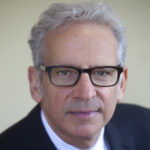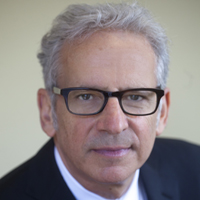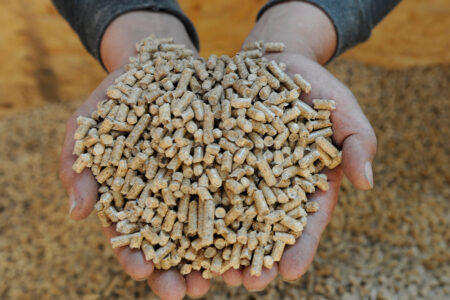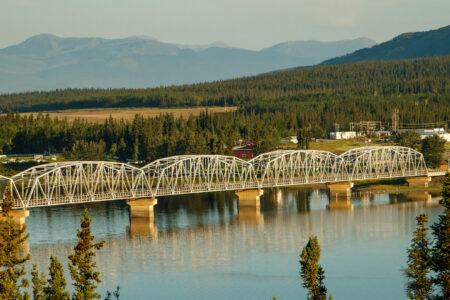
As a founding member of the institutions that shaped the post-Second World War international architecture, Canada has on occasion punched above its weight. But in the dog-eat-dog world of today, we are just another dog, and not the meanest breed. Canada is mired in the dilemma of middle power: our reach exceeds our grasp. Canada will have unprecedented opportunities to lead in the years ahead. To do so, it will have to be tougher than it has ever been.
To much of the world, Canada looks increasingly like an outlier, our moralizing dismissed as nuisance. Our ability to shape behaviour where and when it really matters is limited and likely to become more so.
Working in concert, middle powers like Canada have used multilateral organizations – the United Nations (UN) or the World Trade Organization (WTO), for example – as a “middle power multiplier” to create a counterweight to more powerful players. Canada has also been perceived as having at least the implicit backing of the United States. The US is now an uncertain friend, and the decline of like-minded “liberal” democracies has robbed Canada of obvious allies. As an occasional foreign policy maker, Canada risks sliding into purgatory as a foreign policy taker.
If we don’t want to merely blather on about the things we care about (human rights, gender, climate), but want to be heard, we need strategies that yield better results. We cannot rely on old tactics for a world that was. Canada needs a plan for the world that is and for the one that’s coming. What weapons do we have for that world?
There are several: trade (others want much of what have); our geographic location; and the fact that in a volatile world, we are seen as a safe haven.
Do we want to weaponize trade relations, geography and our welcome mat to help us to shape a world more to our liking and to project, if not our hard power, then our values? That would be a good discussion to have in the upcoming federal election. Is Canada prepared to leverage its assets to project and protect democratic norms (a new “responsibility to protect” if you will), those being the so-called Canadian “values” that the world is said to need more of?
Trade
As Canada has reached out to trade more with the world, it has found itself sometimes facing stark choices: trade or pontificate; or, trade and then pontificate. Recent foreign policy debacles with Saudi Arabia and China have illustrated the uncomfortable powerlessness of a middle-power trading nation.
Whoever we trade with will disappoint us some of the time. We comfort ourselves with the convenient justification that if we don’t engage with a country, if we don’t trade with them, we can have no influence on them. That hope usually ends in tears.
Canada is not a trade behemoth, so using trade as a weapon is challenging. Aside from a few things, much of what we manufacture can be had elsewhere and often cheaper (well, maybe not Canada Goose jackets). Our relative advantage has traditionally been our natural resources. However, what the world will need more of as climate change is upon us, is not oil and minerals, but things we have in abundance: water and arable land.
Others already covet what we have. In February, the benign “Science Guy” Bill Nye, noted the scramble for arable land on a warming planet, referencing the vast agricultural spaces, “nominally in Canada.”
Canada has within its borders the answer to how it can shape a world more in accord with our values and our needs. On a warming planet, Canada becomes an agricultural powerhouse producing food for a parched and hungry world. But that trade with Canada should not be unconditional. Trade is not just trade, it’s foreign policy leverage. The US and China know that. Do we?
When China incarcerated two Canadians in December, our trade relationship offered leverage. Canada should have slowed canola exports to China before China found a way to restrict those same imports. As it ratchets up the pressure, expect China to slow lumber imports from Canada. China understands that this will devastate British Columbia and further complicate the federal Liberals’ electoral prospects there. Our exports to China gave us leverage but it has been China using this as leverage against us.
While we should fight to maintain the open trading system that has served Canada and the world so well, Canada must not be the last to realize that for now, this is a different world and we are in a fight.
Geography
Geographic proximity to the US provided leverage in the recently concluded negotiations to update NAFTA. Getting the deal done was not a function of our naked power, but more a result of the US president’s political necessities and geographic reality. The natural trade flows that have always been north-south and the entrenched continental supply chain reflect that.
China, in its hubris, describes itself as a “near-Arctic State” and sees a “Polar Silk Road” in the navigable Arctic. While currently only an “observer” on the Arctic Council, it is pushing for full membership, joining other nations (that actually border the Arctic) in managing the polar North. The Arctic is one area where Canada has considerable leverage, from stalling any Chinese ship travelling through the Northwest Passage to pressuring members of the Arctic Council to go slow on full membership for China.
Canada should be adamant: no Arctic pretender state will have a say in the vital North or travel our Northern waters until it is safe for Canadians to work and travel in China.
Other nations see a navigable Arctic as the trade route of choice in the years ahead or covet the resources of the far North. At the recent Arctic Council meeting, the US secretary of state didn’t question Russia’s sovereignty in the Arctic; or China’s aspirations there; but Canada’s! This is Canada’s real estate and we have to be prepared to assert and defend our sovereignty in our own backyard. To do so, we have to show up with military force and the resolve to provide a credible presence.
A safe haven
While political and economic insecurity roils much of the world, we seem to be, comparatively speaking, (and allowing for more than a few faults), a haven of tranquility and sanity.
“Brand Canada” has come to mean something. People want to live here. People want a Canadian passport. Tech workers want to work here. Foreign students want to study here and go home with a Canadian degree. People are using Canada as a safety deposit box, but we don’t charge much for it. We should charge more.
Hundreds of thousands of foreign students come to Canada to study; increasingly so in the face of US xenophobia. Access to a Canadian credential should only be available to students from countries that respect Canada and aspire to values Canadians hold important. The privilege of studying in Canada is not unconditional. We should not just be offering university “degrees of convenience.”
Last August, the Saudi Arabian government felt no hesitation in recalling medical professionals studying here to further Saudi Arabia’s sovereign goals. Did Canada realize that the presence of so many Saudi students here was a gift to a regime that has sanctioned abhorrent measures? Did Canada muse (aloud) about sending them home? If our medical system couldn’t do without them, it is we who are the hostages. How did we let that happen?
We have opened our doors to many looking for a safe haven and not asked much in return. When China detained two Canadians in obvious retaliation for the arrest of an executive from Huawei, did we carry on issuing residency permits to Chinese residents? China no doubt has recognized the opportunity for residency and investment in Canada as leverage, and its citizens might be thinking twice about living or investing here. British Columbia has launched a public inquiry into money laundering in the province. This could expose the ultimate owners of real estate and other assets, rumored to include a number of Chinese Communist Party members and their children. That should focus China’s attention very quickly on better relations. This is overdue.
We have been a welcome mat for Chinese residents and Chinese students. What we must not be is anyone’s door mat.
Conclusion
We have little leverage now, but in the world that’s coming, more and more countries will need to trade with us. They will look to Canada to feed their millions. They will look to Canada as a safe haven for themselves and their children. Canada has more power than it has been prepared to use. We are strong enough to make our trade or our welcome conditional. In a world of scarcity and conflict, Canada is happily an outlier. Our trade, our friendship and our hospitality should not be unconditional. An emerging responsibility to feed the world creates a new opportunity to lead in the world. But to do so, Canada will have to be tougher than it has ever been.
Photo: Shutterstock, by Robert Crum
Do you have something to say about the article you just read? Be part of the Policy Options discussion, and send in your own submission. Here is a link on how to do it. | Souhaitez-vous réagir à cet article ? Joignez-vous aux débats d’Options politiques et soumettez-nous votre texte en suivant ces directives.









